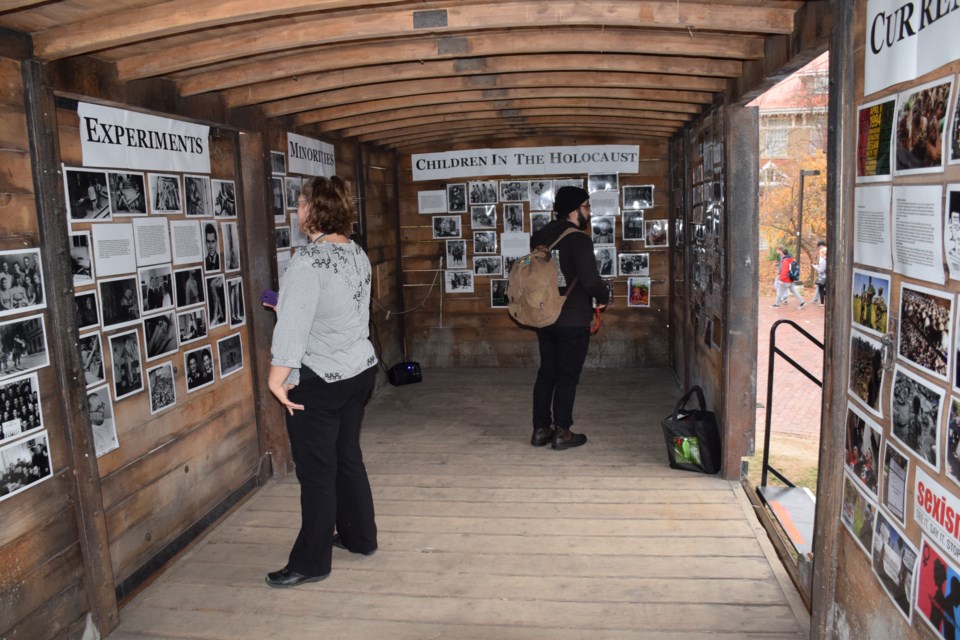The message board inside the replica Holocaust railcar speaks of the reaction of visitors. The words angry, lost, upset, sick, horrific, and scared of the future, are written below the question “I am feeling?”
For the second year, the Holocaust railcar exhibit is parked in the center of the University of Guelph campus. Until the end of the week, anyone walking through Branion plaza won’t miss it.
A replica of the kind of wooden cattle car used to transport Jews and others to death and concentration camps, the boxcar is a grim and unsettling reminder of the depths to which humanity can sink.
It is proving to be a potent educational tool, a shocking reminder of the past, and a wake-up call about contemporary genocide.
Gila Cotler is the director of Hillel Guelph, a campus organization dedicated to Jewish student life at U of G.
“It’s important to bring this back because we keep saying, never again, and yet these mass atrocities are happening again and again,” Cotler said, as she stood inside the railcar Tuesday. The gloomy interior was made more so by the arrival of dark clouds and a light rain beating down on the wooden roof.
“As a university community we have the ability to empower the students, and to make sure these atrocities stop happening,” she added.
Throughout the early 1940s, as world war raged, victims of genocide were transported by rail to the camps, where they were sent by the millions to gas chambers, or worked and starved to death.
During transport, as many as 200 men, women and children were packed into the cattle cars, with no food or water provided. Many died in transit.
“Some have never seen these pictures, and know nothing about these horrors,” Cotler added, referring to the images of medical experimentation and other ghastly images on the car’s walls.
“Something about stepping into a replica of a cattle car and suddenly seeing the size of it and envisioning that 200 people had to be fit into something like this, and seeing the pictures in a place like this, makes it that much stronger.”
The atrocities committed by the Nazis, she added, were enabled by indifference. Many knew, but many did nothing to stop it. The same happened in Rwanda. And right now, atrocities are being committed in Syria and parts of Africa.
“We know and we need to act,” she said. “Only by educating the younger generation about the fact that these things did happen, can we make sure that we really do live up to our slogan of 'never again.'”
The Holocaust railcar exhibit is part of Holocaust Education Week. The event includes a talk on Thursday night, 7 p.m. by Holocaust survivor Bill Glied at Peter Clark Hall on campus. And on Friday night, there is a Shabbat dinner, with keynote speaker Eloge Butera. It is also at 7 p.m. in Peter Clark Hall.
